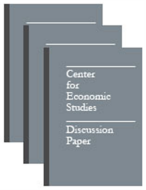Connected And Uncooperative: The Effects Of Homogenous And Exclusive Social Networks On Survey Response Rates And Nonresponse Bias
Connected And Uncooperative: The Effects Of Homogenous And Exclusive Social Networks On Survey Response Rates And Nonresponse Bias
Abstract
Social capital, the strength of people’s friendship networks and community ties, has been hypothesized as an important determinant of survey participation. Investigating this hypothesis has been difficult given data constraints. In this paper, we provide insights by investigating how response rates and nonresponse bias in the American Community Survey are correlated with county-level social network data from Facebook. We find that areas of the United States where people have more exclusive and homogenous social networks have higher nonresponse bias and lower response rates. These results provide further evidence that the effects of social capital may not be simply a matter of whether people are socially isolated or not, but also what types of social connections people have and the sociodemographic heterogeneity of their social networks.
Others in Series
Working Paper
Working Paper
Working Paper




